'Being part of the national ecosystem assessment is not just a job, it is a way to make a meaningful difference in the world’
Shaping the National Ecosystem Assessment of Malawi
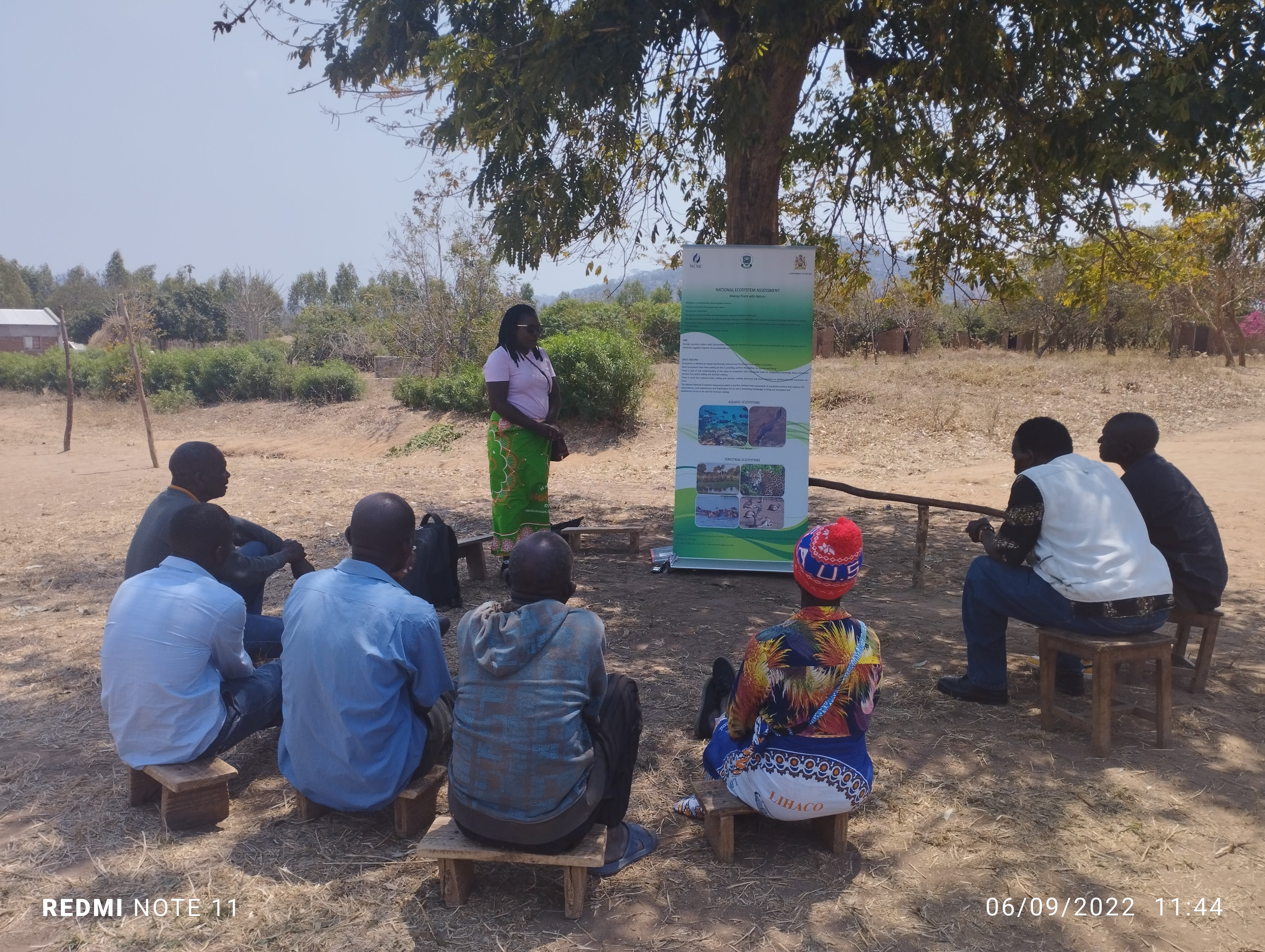
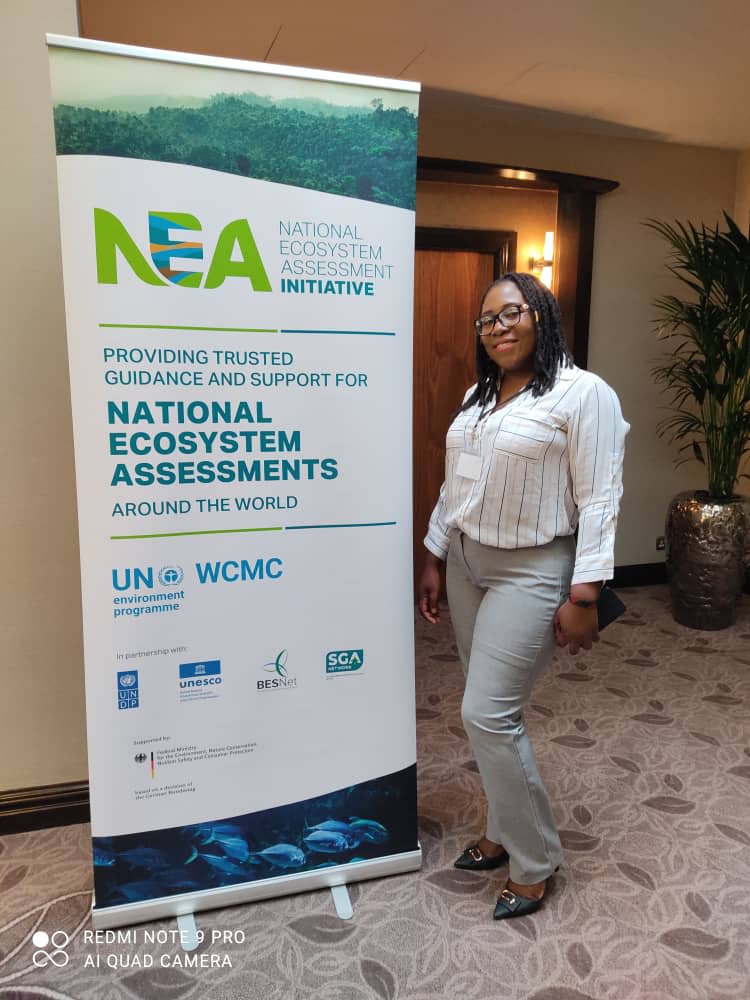
At the NEA Initiative's Annual Global Workshop 2023 in Cambridge, UK.
At the NEA Initiative's Annual Global Workshop 2023 in Cambridge, UK.
NEA Initiative: Tell us about your role in the national ecosystem assessment process in Malawi. What are your areas of responsibility?
Ms. Kammwamba: As part of the management team, I take a leading role in the implementation of the national ecosystem assessment in Malawi. My areas of responsibility include coordinating the Indigenous and Local Knowledge (ILK) Technical Working Group which is including Indigenous and local knowledge with science in the assessment. I also facilitate dialogues and collaboration among stakeholders from government, civil society, academia, and local communities through Trialogues. My role is also essential for engaging with the media and developing communication strategies and informational materials to support the assessment process.
NEA Initiative: How has your journey been as part of the national ecosystem assessment process in your country? Please share your significant contributions and achievements.
Ms. Kammwamba: As an environmental scientist, my journey has been both exciting and interesting, filled with milestones.
Some of my key contributions and achievements include facilitating and coordinating the formation of the ILK Technical Working Group, as well as the actual engagement with ILK holders and other local communities by conducting framing workshops and follow-up meetings in eight districts of Malawi where the assessment is focusing. Moreover, I have advocated for the inclusion of ILK representatives in the Malawi National Biodiversity Advisory Committee which is the National Biodiversity Platform that approves all documents related to biodiversity in Malawi.
I represented the Malawi National Ecosystem Assessment team during the high-level UNESCO LINKS 20th anniversary in Paris, where I presented our progress on weaving ILK in the assessment process, sharing experiences and lessons learned. With technical support from UNESCO, I have spearheaded a citizen science initiative, engaging local communities in data collection efforts to foster greater public awareness of the national ecosystem assessment and giving feedback to local communities.
Moving forward, I remain dedicated to supporting evidence-based conservation efforts and promoting the stewardship of our natural heritage for future generations.
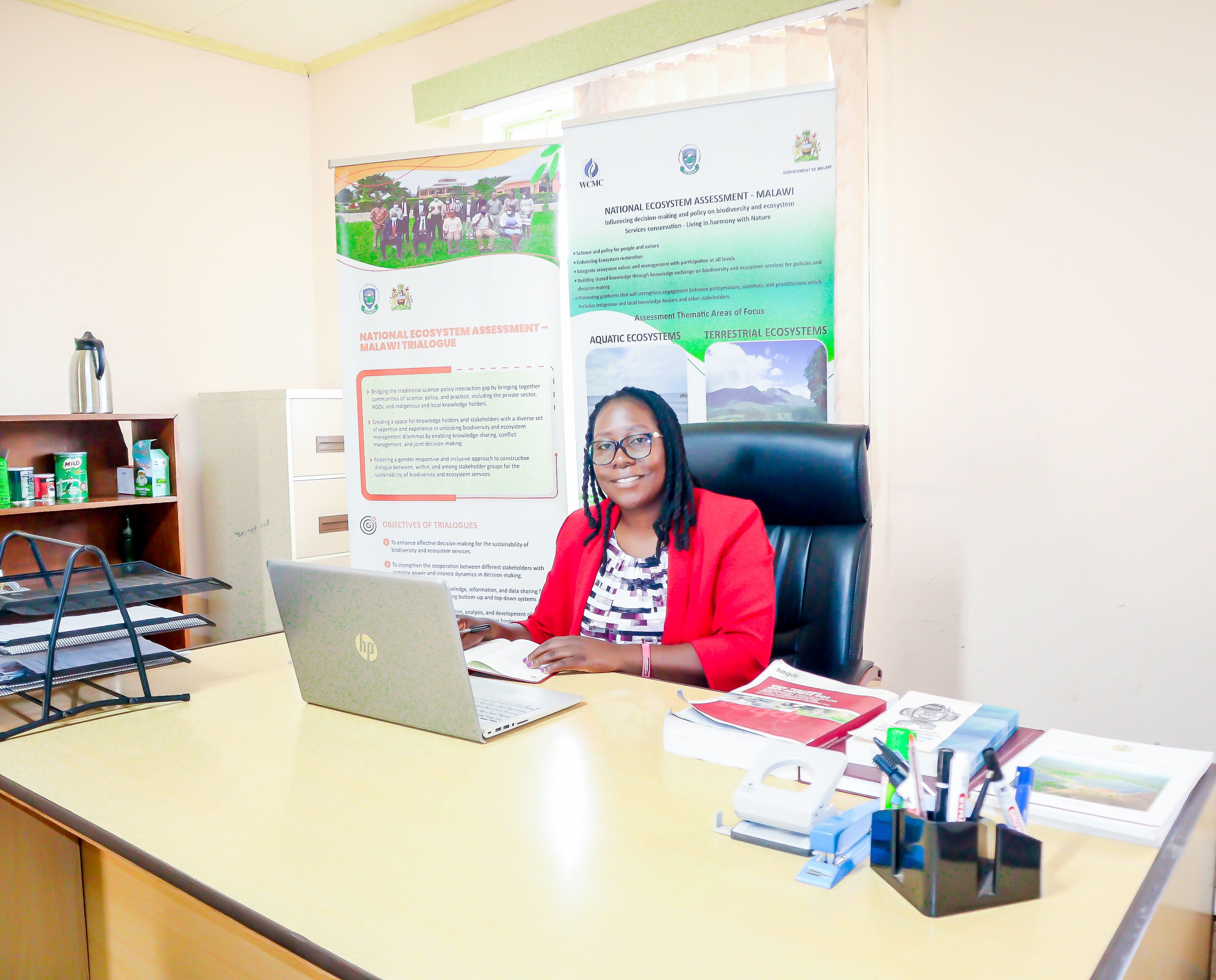
NEA Initiative: What inspires you to work in nature conservation and biodiversity, particularly being part of the national ecosystem assessment team?
Ms. Kammwamba: My deep commitment to nature conservation and biodiversity was instilled when I was young and has stayed with me ever since, shaping who I am with God’s guidance all the way. A powerful experience connecting with nature triggered my lifelong dedication to protecting the environment and preserving Earth's ecological balance.
Embarking on a transformative journey, I sought solace amidst the towering expanse of Michiru Forest, nestled in the green landscapes of Malawi's southern region. Through a hard ten days of hiking, I engaged myself in the splendor of the natural world, creating a lasting connection with its natural beauty and biodiversity. This deep connection instilled within me a permanent attachment to nature and drove me towards dedicating myself to its protection. With a clear goal in mind, I worked hard to earn a Bachelor of Science degree in Natural Resources Management. Going to college was like setting sail on a learning adventure, driven by my strong desire to understand and make a positive impact on nature conservation.
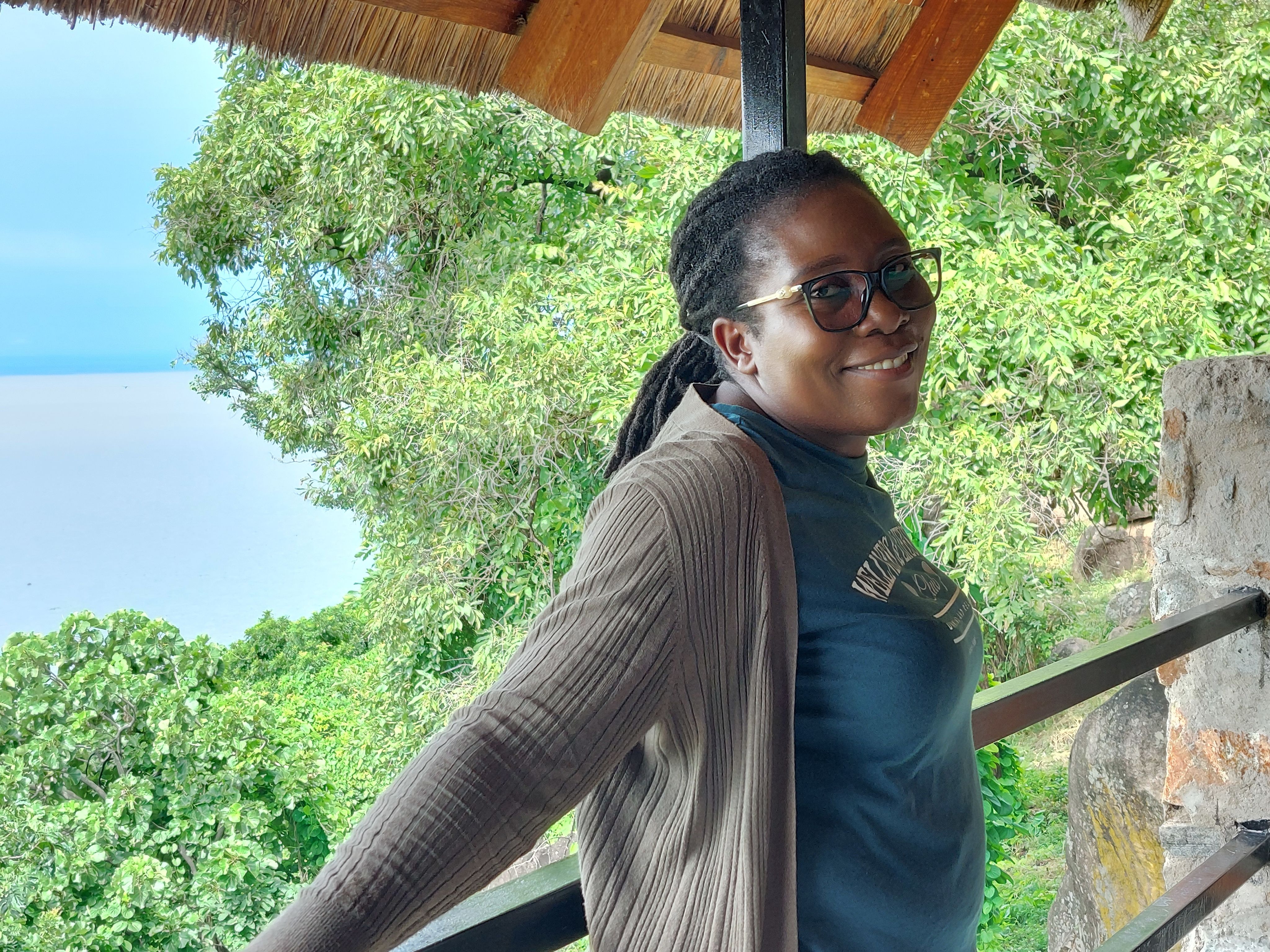
Appreciating the beauty of Nature Lake Malawi Salima.
Appreciating the beauty of Nature Lake Malawi Salima.
Being part of the national ecosystem assessment is not just a job, it is a way to make a meaningful difference in the world. I know that by studying and enhancing the conservation of biodiversity and ecosystems, I am helping to safeguard the future of biodiversity as well as the well-being of humanity itself. This has offered me the opportunity to make a significant impact on conservation efforts. Especially by providing valuable insights and data that will influence policy decisions and management strategies that affect the health of biodiversity and ecosystems.
I feel grateful every day to be doing work that is aligned with my passion and values. I look out at the vast expanse of nature stretching before me and I know that I am exactly where I was meant to be at this time. The NEA is a project of national importance, and it has provided me with valuable professional development opportunities. I have gained exposure at a global level and have a chance to collaborate with experts in my field, both at national and global levels, which has helped me to gain new skills and broaden my understanding of biodiversity and ecosystem dynamics.
NEA Initiative: Tell us about your mission to help people and nature.
Ms. Kammwamba: As an environmental scientist, my mission is to promote sustainable living while conserving natural ecosystems and recognizing the interconnectedness of people and nature.
NEA Initiative: What is your message for women and young girls around the world to be a driving force for the conservation of nature and the well-being of people?
Ms. Kammwamba: My message would be that it is time to embrace your power as stewards of the earth. Your voices, actions and leadership are essential for safeguarding our planet’s future and ensuring the health and prosperity of all communities. Let us bring out our knowledge and work together and champion environmental conservation. Let us advocate for sustainable practices and foster inclusive solutions. Together we can ignite positive change and create a more equitable and sustainable world where environmental conservation and human well-being go hand in hand for generations to come.
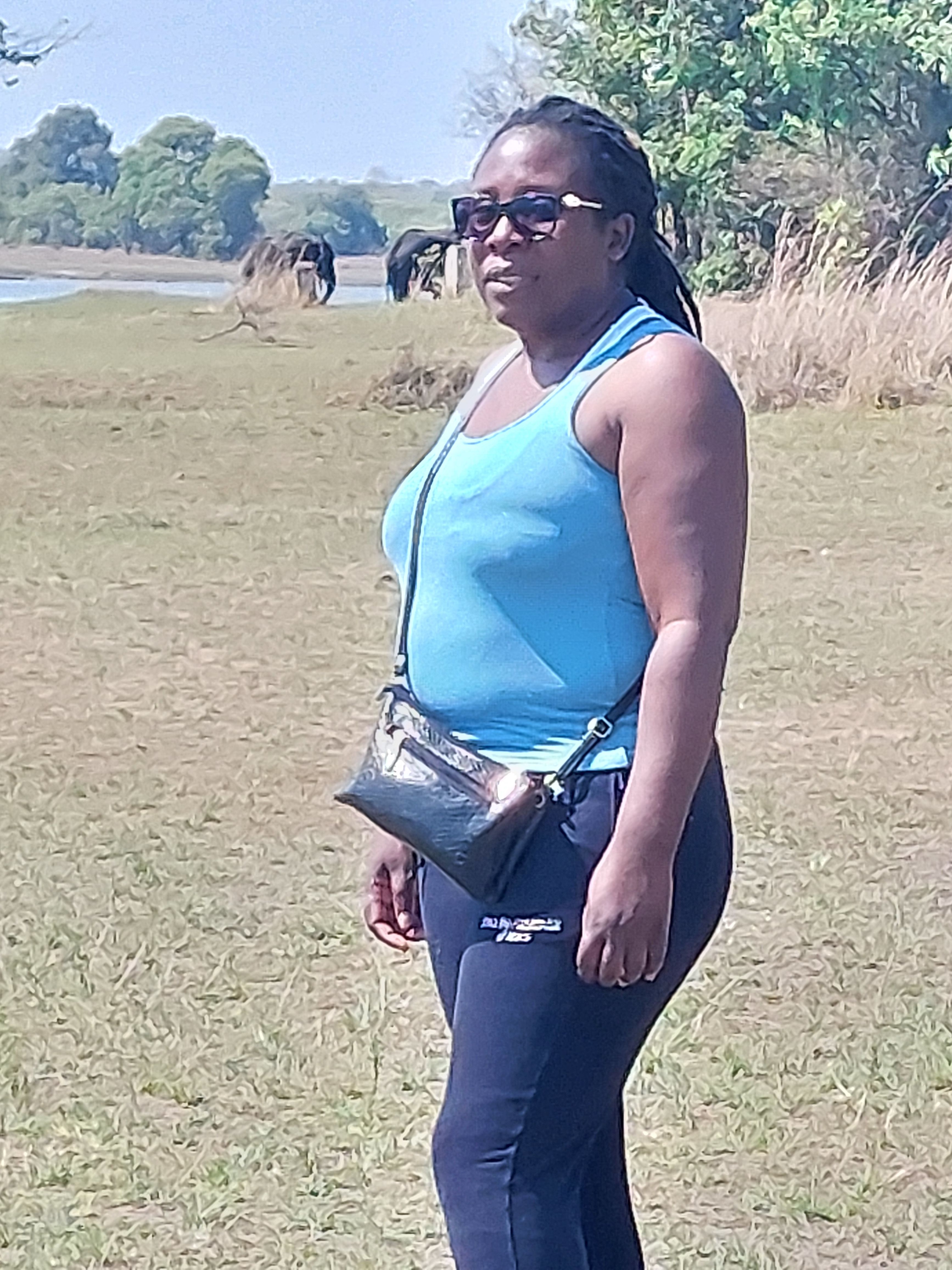
Kasungu National Park.
Kasungu National Park.
The National Ecosystem Assessment Initiative (NEA Initiative) at UNEP-WCMC is part of the Biodiversity and Ecosystem Services Network (BES-Net), working in partnership with UNDP and UNESCO. Financial support for the NEA Initiative is being provided by the International Climate Initiative (IKI) of the German Federal Ministry for the Environment, Nature Conservation, Nuclear Safety, and Consumer Protection, the Norwegian Environmental Agency, the Japan Biodiversity Fund, and SwedBio.